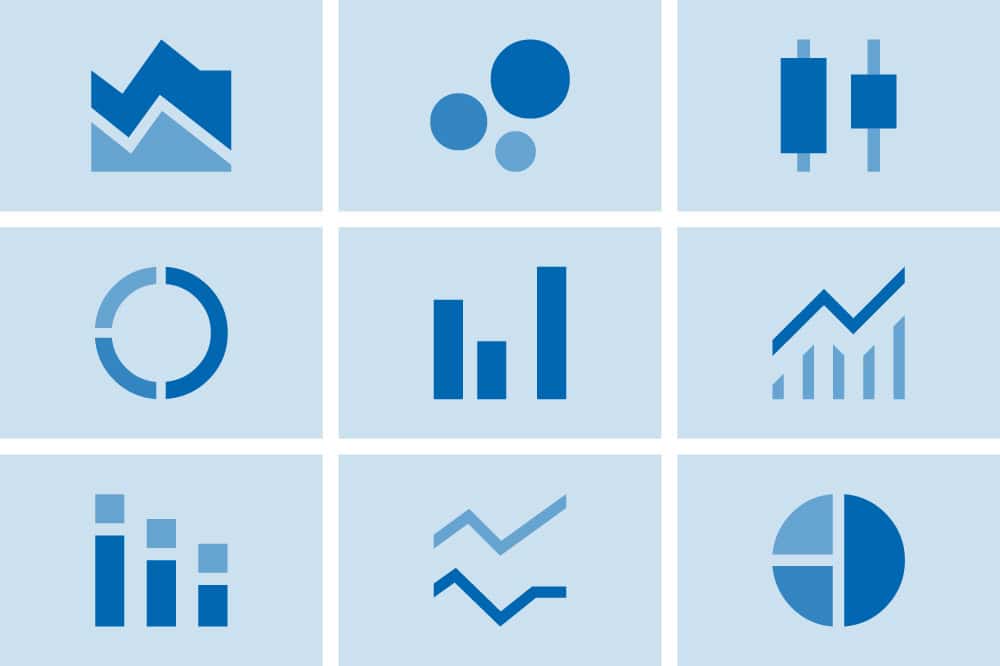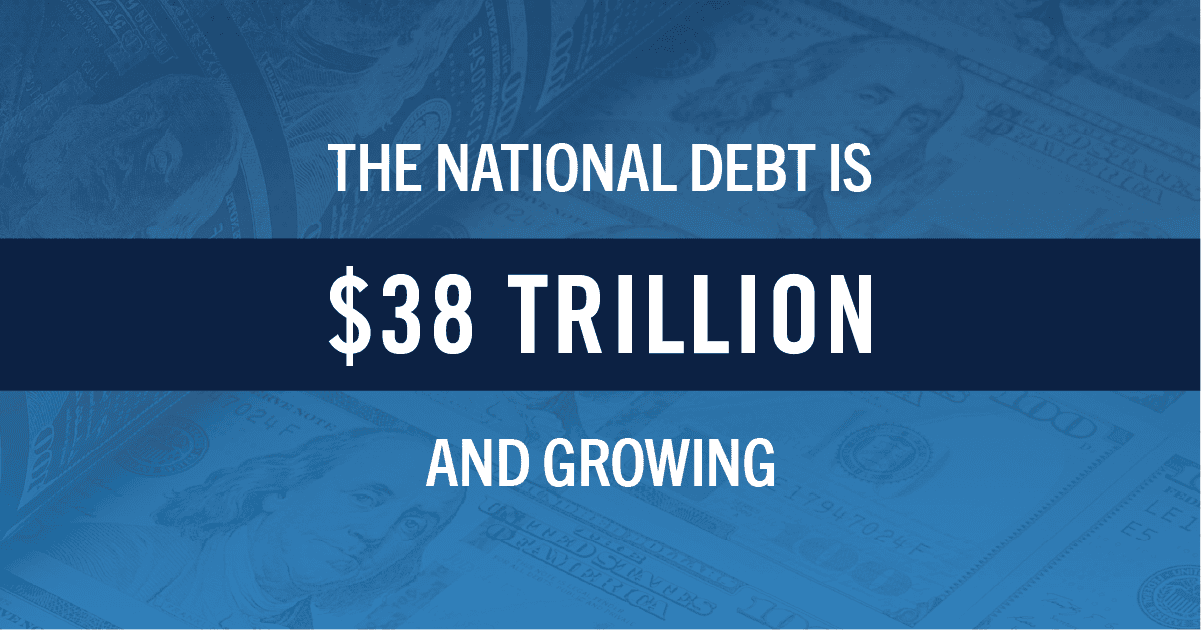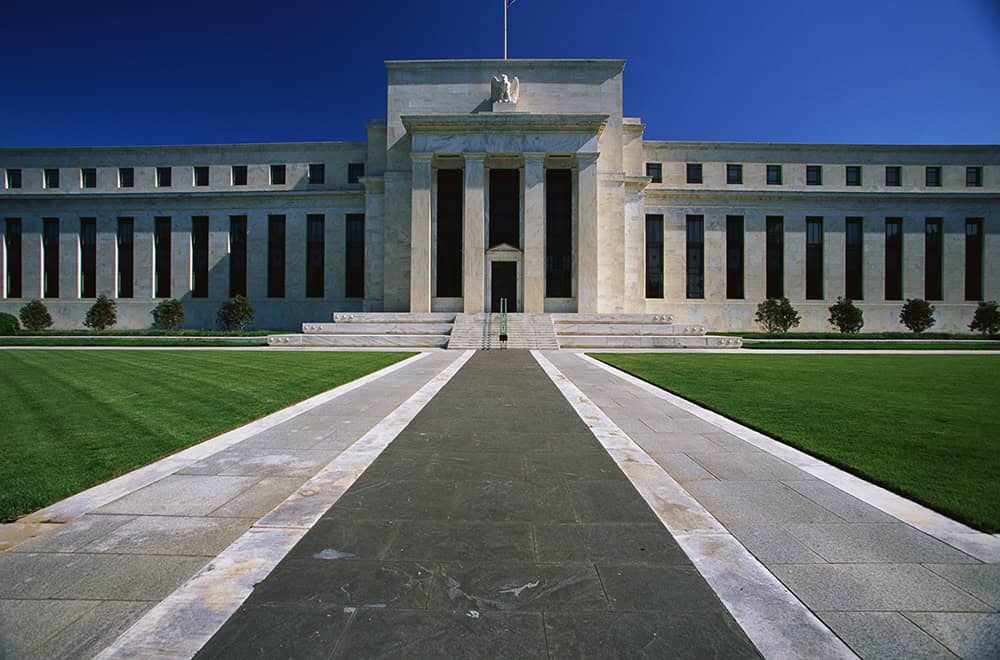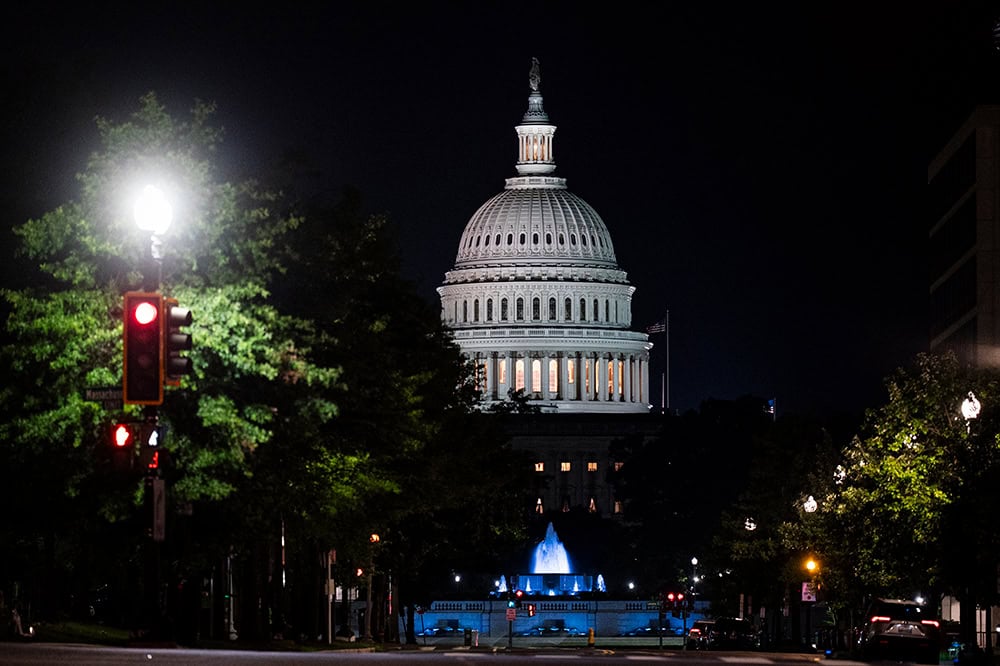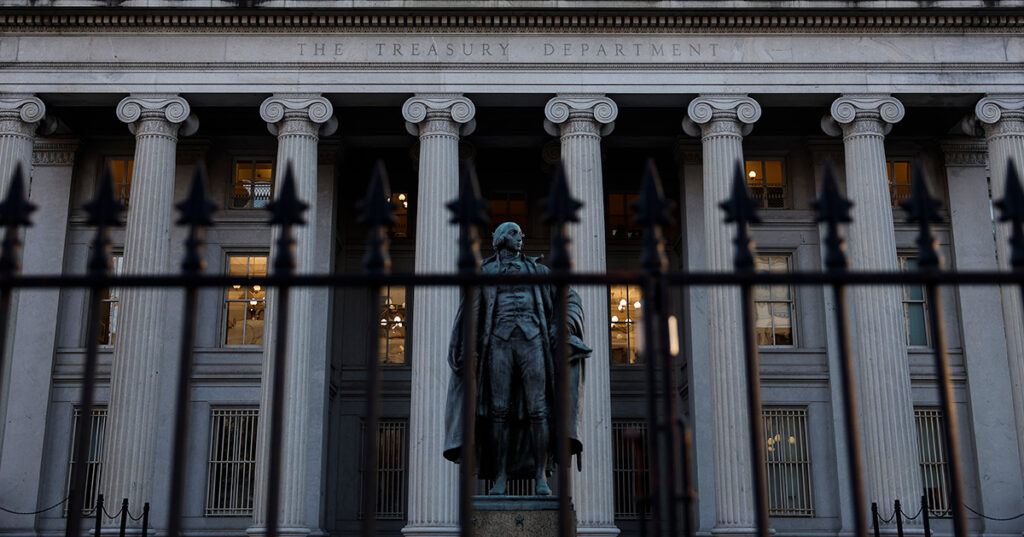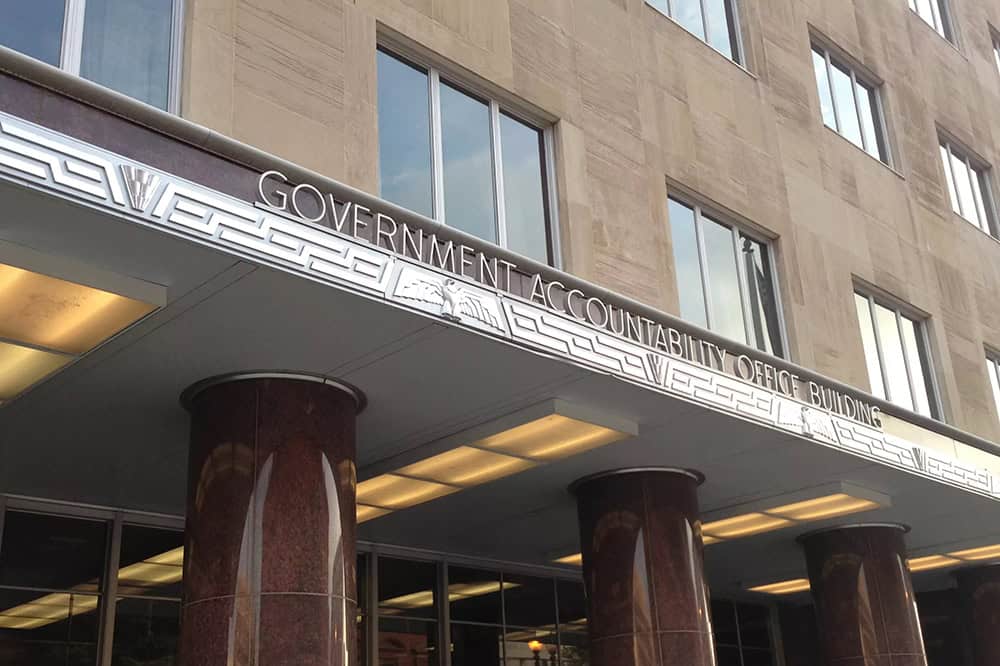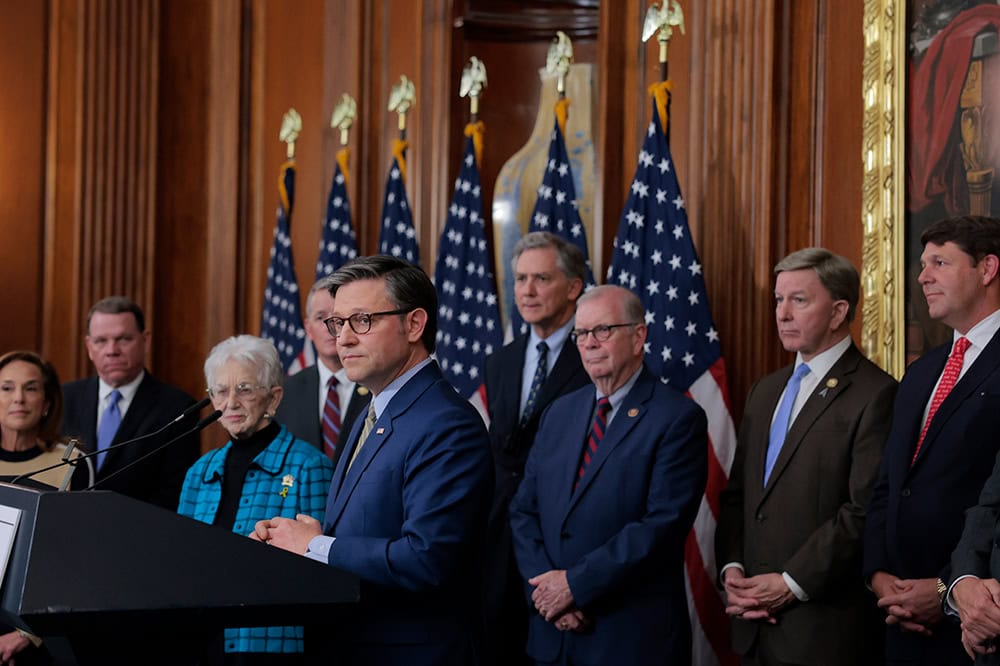Chart Pack: Fiscal Outlook
The national debt is already at its highest level since just after World War II, and annual deficits are on an upward trajectory.
Read MoreNational Debt Clock
What is the total national debt? What is the debt per person? See the latest numbers and learn more about the causes of our high and rising debt.
Read MoreWhat Are Interest Costs on the National Debt?
Interest costs are on track to become the largest category of spending in the federal budget.
Read MoreThe One Big Beautiful Bill Act Is the Most Expensive Reconciliation Package in Recent History
The legislative package will be the most expensive reconciliation bill in a quarter of a century and will add trillions of dollars to the U.S. debt.
Read MoreLifting the Debt Ceiling Has Been Paired with Budget Reform in the Past
Earlier this year, the United States once again hit its debt ceiling, which is currently capped at $36.1 trillion.
Read MoreEven with Economic Growth Factored in, OBBBA Would Increase Deficits
The small, positive fiscal impact from slightly higher economic growth is projected to be more than offset by increased federal interest costs.
Read More589 Ways to Improve Government Efficiency and Reduce Deficits
A new report outlines ways to find cost savings by reducing overlap, duplication, and fragmentation across the federal government.
Read MoreHouse Reconciliation Bill Would Add Trillions to the National Debt
The bill would increase debt by $3.0 trillion over the next 10 years, driving it from nearly 100 percent of GDP now to 124 percent of GDP by 2034.
Read MoreThe Scorekeepers Agree: Budget Bill will Increase U.S. Debt by Trillions
The House recently passed the One Big Beautiful Bill Act, and scorekeepers are unanimous in their assessment that it would increase federal debt.
Read MoreHouse Reconciliation Bill Would Increase the National Debt by More Than Any Other Recent Legislation
The House recently passed the largest reconciliation bill ever. CBO estimates it would add $2.4 trillion (excluding interest) to the national debt over 10 years.
Read More